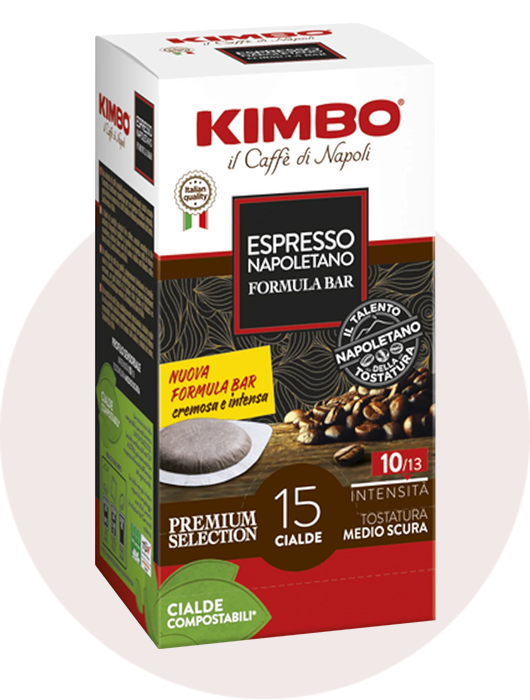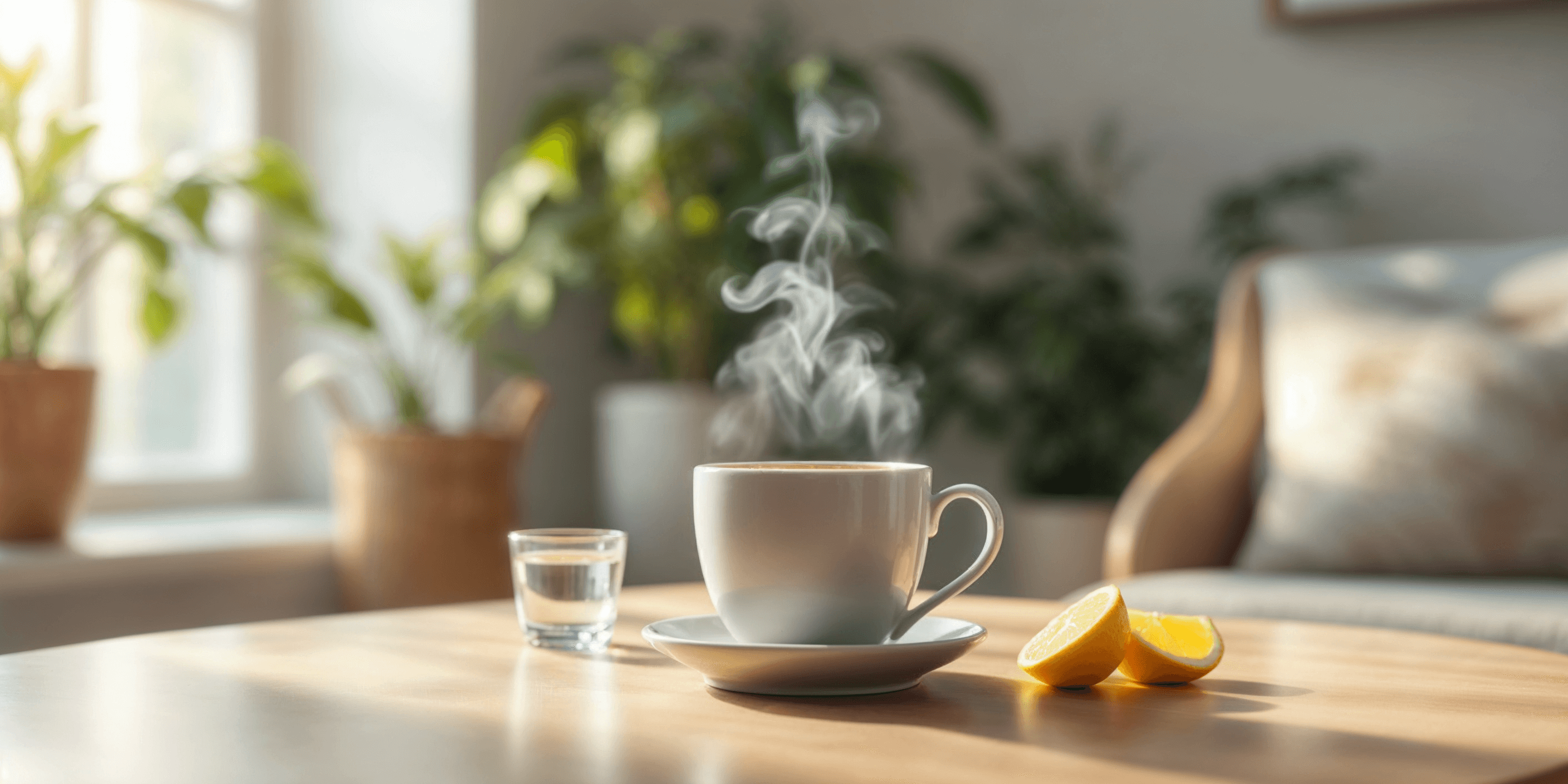Coffee is the go-to for many of us to jump-start our day, stay focused during long hours of work, or simply enjoy a moment of relaxation. But if you've ever had too much, you know the feeling all too well: jittery hands, racing thoughts, and a pounding heart. These coffee jitters can take the fun out of your favorite brew, leaving you wondering what went wrong. If you're struggling with caffeine overload, don’t worry. This guide will help you calm anxiety, stop feeling jittery, and enjoy your cup of coffee without the shakes.
What Causes Coffee Jitters?
Caffeine is a stimulant that affects your central nervous system by blocking adenosine, the brain chemical that helps you relax and sleep. As a result, it triggers the release of adrenaline and cortisol, making you feel more alert, energetic, and sometimes... jittery. If you’ve had too much caffeine, these effects can become overwhelming, causing shaky hands, anxiety, or even heart palpitations.
Signs of too much caffeine include:
-
Shaky hands or jittery feelings
-
Increased heart rate or palpitations
-
Nervousness or anxiousness
-
Dizziness or lightheadedness
-
Sweating or feeling overheated
-
Upset stomach
Understanding Your Personal Caffeine Limit
We should note that the FDA recommends a maximum of 400mg of caffeine daily for healthy adults—roughly equivalent to 4 cups of coffee. However, your personal tolerance depends on several factors including genetics, age, body weight, and liver function. Some people metabolize caffeine quickly due to genetic variations in the CYP1A2 enzyme, while others process it much slower, making them more susceptible to jitters even with smaller amounts.
Certain medications can also increase caffeine sensitivity, including some antidepressants, antibiotics, and birth control pills. We recommend keeping a caffeine journal to track your intake and symptoms, helping you identify your personal threshold before jitters occur.
How to Stop Feeling Jittery from Coffee: Immediate Relief
When you're feeling jittery after coffee, the first thing to do is take action to calm down and reduce the caffeine overload. Here are a few quick strategies that work:
1. Drink Water
Caffeine is a diuretic, meaning it makes you urinate more often, which can lead to dehydration. Drinking water helps flush caffeine out of your system and can soothe your body, reducing the intensity of coffee jitters. Aim for a few glasses of water to hydrate and restore balance.
2. Replace Lost Electrolytes
Since caffeine acts as a diuretic, you're losing more than just water—you're also depleting essential electrolytes. We recommend supplementing water intake with an electrolyte replacement solution like Pedialyte or coconut water, especially if you've experienced stomach upset or excessive urination. This helps restore the sodium, potassium, and magnesium balance that caffeine's diuretic effect disrupts.
3. Take a Walk
Getting your body moving can help reduce anxiety and burn off extra energy. Even a short walk will improve circulation, calm your mind, and help metabolize the caffeine faster. Physical activity is a great way to get rid of jitters from coffee without waiting for them to fade naturally.
4. Eat Something
Coffee on an empty stomach tends to hit harder, leading to more intense jitters. Eating a balanced meal or snack—preferably one rich in protein and fiber—can help slow down caffeine absorption. Foods like avocados, nuts, eggs, or oatmeal will stabilize blood sugar levels, which can prevent the crash that often follows coffee consumption.
5. Practice Deep Breathing
If your anxiety feels overwhelming, deep breathing can be a quick remedy. Try box breathing: inhale for four seconds, hold for four seconds, and exhale for eight seconds. This technique can help calm anxiety and slow your heart rate, providing immediate relief from caffeine-induced nervousness.
6. Rest and Relax
Even if you can't sleep, simply resting in a quiet space can help your body process the caffeine and settle down. Reduce stimuli, dim the lights, and take deep breaths to calm the anxiety and relax.
When to Seek Medical Attention
While most caffeine jitters resolve within 3-5 hours, certain symptoms require immediate medical attention. We urge you to visit the emergency room if you experience:
- Severe chest pain or irregular heartbeat lasting more than a few minutes
- Dizziness or fainting that doesn't improve with rest
- Difficulty breathing or shortness of breath
- Confusion or signs of panic attack that persist
The half-life of caffeine is approximately 5 hours, meaning half the caffeine remains in your system at that point. For some individuals, effects can last up to 12 hours, particularly if you have slower caffeine metabolism or liver conditions.
Smart Coffee Choices to Prevent Future Jitters
Choose the Right Coffee Beans and Roast
We've found that your choice of coffee beans significantly impacts jitter likelihood. Arabica beans contain 1.2-1.5% caffeine compared to Robusta's 2.2-2.7%, making them a gentler option for sensitive individuals. Additionally, shade-grown organic coffee naturally contains less caffeine because slower growth in shaded conditions produces beans with lower caffeine concentrations.
Contrary to popular belief, dark roasts contain slightly less caffeine than light roasts. The extended roasting process breaks down caffeine molecules, though the difference is minimal (about 5-10%). We recommend trying specialty-grade, single-origin Arabica beans with a medium-dark roast for optimal balance.
Consider Adaptogen-Enhanced Coffee
We're seeing promising results from adaptogen coffee blends that combine traditional coffee with stress-modulating herbs and mushrooms. These additions can help buffer caffeine's stimulating effects:
- Ashwagandha: Reduces cortisol response and anxiety
- L-theanine: Promotes calm focus (200mg pairs well with 100mg caffeine)
- Lion's Mane: Supports cognitive function without added stimulation
- Reishi: Counteracts caffeine's stress response
- Rhodiola: Helps manage physical stress responses
Optimal Brewing Methods for Sensitive Systems
We recommend adjusting your brewing method to control caffeine extraction. Cold brew coffee, despite its smooth taste, actually contains more caffeine per serving (200-300mg per cup) due to the extended steeping time. For lower caffeine content, we suggest:
- Pour-over method: Allows precise control over water temperature (195-205°F optimal) and extraction time
- French press: 4-minute steep time produces moderate caffeine levels
- Espresso-based drinks with milk: Single shot contains only 63mg caffeine, diluted further with milk
Long-Term Solutions: Preventing Coffee Jitters
If you're frequently battling jitters from caffeine, it's important to change how you approach coffee to prevent future issues. Here’s how you can stop the jitters from coffee for good:
1. Reduce Your Caffeine Intake Gradually
Over time, your body builds a tolerance to caffeine. However, if you're noticing more frequent jitters, it might be time to cut back. Instead of quitting cold turkey, reduce your intake gradually. Start by cutting down to two cups per day and give your body time to adjust.
2. Eat Before Coffee
Drinking coffee on an empty stomach leads to faster absorption, which amplifies caffeine’s effects. Always make sure you eat something before drinking coffee to slow caffeine absorption and avoid jittery feelings.
3. Switch to Decaf or Half-Caf
If you love the taste of coffee but hate the shakes, try switching to decaf or half-caf. These options provide the flavor and comfort of coffee without the same level of caffeine, making them an ideal choice for reducing caffeine jittery feelings.
4. Drink Water Throughout the Day
Staying hydrated is key in managing caffeine. Since coffee is a diuretic, it increases urination, causing you to lose essential fluids. Drink water regularly throughout the day, especially alongside coffee, to stay hydrated and prevent caffeine-induced dehydration.
5. Limit Caffeine Later in the Day
Caffeine can stay in your system for hours, so avoid drinking it too late in the day. Try limiting your caffeine consumption to the morning, ensuring that it doesn’t interfere with your sleep and reduce anxiety later on.
How Diet Affects Coffee Jitters
What you eat can either help you calm anxiety or make your coffee jitters worse. Here’s how:
Foods to Avoid:
-
Sugary snacks: These can cause a rapid increase in blood sugar, leading to a crash later, which can worsen jitteriness.
-
Highly processed foods: These can trigger spikes and dips in blood sugar, exacerbating feelings of anxiety.
Foods that Help:
-
Magnesium-rich foods like spinach, almonds, and avocados can calm the nervous system and alleviate anxiety.
-
Protein-packed meals: Eating balanced meals with protein and fiber helps stabilize blood sugar levels and reduces the likelihood of jitteriness.
-
Vitamin C-rich foods like oranges and grapefruit can counteract some of the negative effects of caffeine.
The Role of Supplements in Reducing Coffee Jitters
Some people find that supplements can help mitigate caffeine jitters. Here are a few options to consider:
-
L-Theanine: This amino acid found in tea helps promote calmness without causing drowsiness. Pairing it with coffee can help reduce the anxiety and jitters caused by caffeine.
-
Magnesium: Known for its relaxing properties, magnesium can help calm the nervous system and reduce the jittery effects of caffeine.
-
Vitamin C: Taking Vitamin C can help replenish stores depleted by caffeine, calming anxiety and stabilizing mood.
When to See a Doctor About Caffeine Jitters
Most of the time, caffeine jitters are temporary and harmless, but in some cases, they can be a sign of underlying health issues. If you experience any of the following, consider consulting a doctor:
-
Severe chest pain or irregular heartbeat after caffeine consumption
-
Dizziness or fainting that doesn’t go away after caffeine has worn off
-
Excessive anxiety or feelings of panic that persist beyond the typical effects of caffeine
-
Prolonged symptoms that last more than a few hours, even after hydrating or eating
Final Thoughts: Savor Your Coffee Without the Jitters
Coffee doesn’t have to be a source of anxiety or jitters from caffeine. By following these simple tips, you can enjoy your cup without the uncomfortable side effects. Start by understanding your body’s response to caffeine, make small adjustments to your habits, and incorporate some of the natural remedies we’ve discussed. Whether you opt for water, food, or mindful breathing, there are plenty of ways to manage your caffeine intake without sacrificing your love for coffee.
Don’t let coffee jitters ruin your day—take control, and sip away without the shakes.






